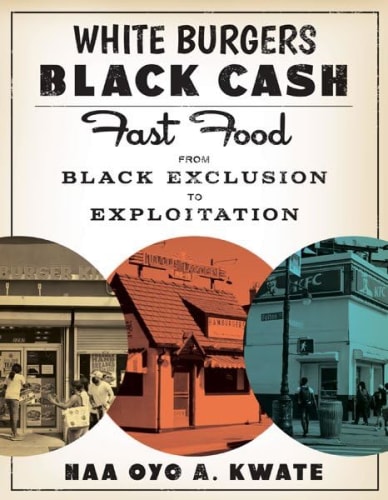
White Burgers, Black Cash
Fast Food from Black Exclusion to Exploitation
The long and pernicious relationship between fast food restaurants and the African American community Today, fast food is disproportionately located in Black neighborhoods and marketed to Black Americans through targeted advertising. But throughout much of the twentieth century, fast food was developed specifically for White urban and suburban customers, purposefully avoiding Black spaces. In White Burgers, Black Cash, Naa Oyo A. Kwate traces the evolution in fast food from the early 1900s to the present, from its long history of racist exclusion to its current damaging embrace of urban Black communities. Fast food has historically been tied to the country’s self-image as the land of opportunity and is marketed as one of life’s simple pleasures, but a more insidious history lies at the industry’s core. White Burgers, Black Cash investigates the complex trajectory of restaurant locations from a decided commitment to Whiteness to the disproportionate densities that characterize Black communities today. Kwate expansively charts fast food’s racial and spatial transformation and centers the cities of Chicago, New York City, and Washington, D.C., in a national examination of the biggest brands of today, including White Castle, KFC, Burger King, McDonald’s, and more. Deeply researched, grippingly told, and brimming with surprising details, White Burgers, Black Cash reveals the inequalities embedded in the closest thing Americans have to a national meal.
White Burgers, Black Cash
Fast Food from Black Exclusion to Exploitation
